She was at once an intense and direct personality, devoid of any public relations skin. When she talked she was intense. She lived a life external to her, that is, she did not have much of a psychological architecture: she was an action-oriented person. Her personality and persona were one and the same thing. Such personality congruency is rare.
She was born Gorabatni Shangloo in a family of middle-class sensibility. Shangloos were some of the very finest people you could find in Kashmir. They were straight, simple, and affectionate. Every visit I made to their household was an experience of love and hospitality. And I have made a few hundred visits. Women folk were even better. How a household of that goodness existed in Kashmir of those days was mind boggling. That is why whenever I go to Srinagar I make a point to visit the Shangloo house, which is now decrypt, a shadow of its former glory. On such visits when I peer at it for many minutes I sense within myself the old life rising from its ruins. How could such a coliseum of life and love die? Time may think itself to be glorious in leveling human life, but I feel god is not fair to accord it so much power.
Pyari was keen to go to college in those days when women were discouraged from such enterprises. But she was willful and consistent. After obtaining B.A. from Kashmir she went to Lahore to pursue B.T. (nowadays called B.Ed.), becoming the first B.T. in Kashmir. One of the reasons why her husband married her was because she was educated.
After getting married she pursued her career as the first headmistress of Vasanta Girls High School, a position she held for some thirty years. She generally never missed a day. Her devotion to her job was singular and intense. Such total absorption created problems with her husband, who was looking for a traditional wife. Their relationship was less than perfect. He was looking for a wife who would discuss politics and literature with him and also be a companion to him in his official social life. But in spite of that they still loved each other.
In the household politics of those times Pyari would express herself boldly, disregarding the conventional behavior, to the embarrassment of some people around her, which included senior relatives. But over time she gained both respect and fear from the people she was dealing with. This was in contrast to my mother, who was a senior daughter-in-law in the family, but who was timid.
Pyari liked me very much during the six years I spent at her home, when I was in exile in Kashmir, created by my father. Sometimes she would take me to her bedroom and sing. She had a singing voice. She liked to sing Noorjehan’s song awaz de khan hey, duniya meri khan hey. She thought very highly of me and believed that one day I would make a mark in the world. This unmet expectation of her hurts me deeply, as I grew up without any achievements. But it was due to my low caliber, but not because of my lack of trying.
She would confide in me some of the problems she was having with her husband. Her deep love for me has left an indelible mark in me. At times I thought that she was a tragic person, but later I realized she was a born fighter.
The tragedy of her life came in about 1969 when she was diagnosed with breast cancer. Eight years of painful period followed. I met her in 1974 in Srinagar, she looked wasted. Then two years later, in September, 1976, god mercifully took her in his hand. She died at only the age of 53.
Generations of people in Kaul clan will hardly believe that such a good and strong person as Pyari was lived in it.
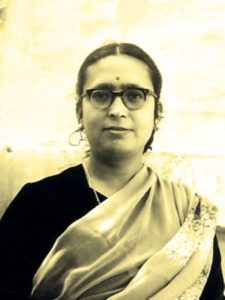
The below picture was taken by me in Pahalgam, Kashmir in August, 1974.
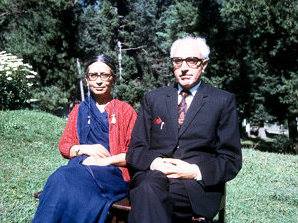
Pictures of Vasanta Girls Higth School Taken By Me In 2013:
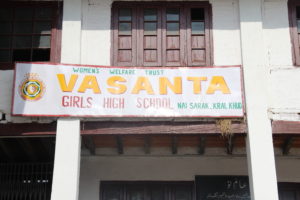
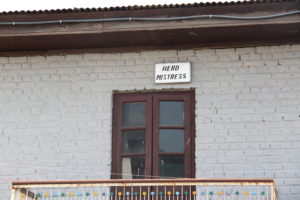
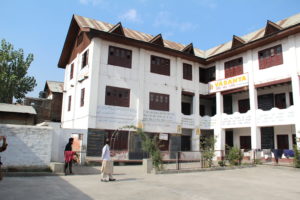
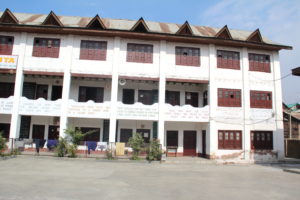
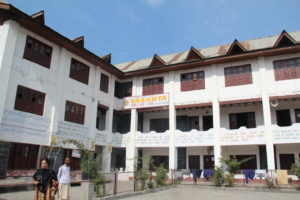
Suffern, New York, March 30, 2014; Rev: May, 2017
www.kaulscorner.com
maharaj.kaul@yahoo.com

